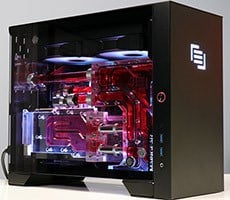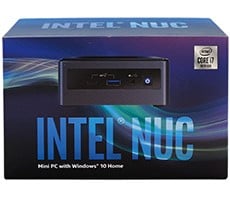Jolicloud Cloud-Based Linux Desktop Review
Jolicloud 1.1 Computing Experience
Jolicloud's newest operating system release can be summed up in one word: “accessible”. To sum it up in fourteen words: “accessible, and yes it's Linux underneath, but please don't run away screaming quite yet.”
Anyone trying this relative newcomer might call it accessible because it has an extremely easy-to-use interface. Or, it could be called accessible in the sense that it's free and will run on minimal hardware. Or, it may be accessible because it integrates concepts familiar to social networking users directly into the main interface.

A Jolicloud Desktop
Previously, Jolicloud had been referred to as a “netbook only OS”. But, with version 1.1 the organization has changed their focus to emphasize “recycling computers”. System requirements are exceedingly minimal, and the entire OS uses barely over 2GB of space on a test machine. An official list of supported/tested devices is available, though it's hard to imagine a system that would not run this OS.
There is one caveat to mention related to system specs, though: Jolicloud is only available for x86 devices at the moment. If you have a smartbook or other device powered by an ARM CPU, the current version of Jolicloud will be of no use to you. It appears that the OS will be available for ARM devices in the future though, as one of the benefits the developers cited when moving their web app platform from Prism to Chrome was “Good performance on ARM netbooks and tablets”.

Jolicloud's Universal Folders
Jolicloud uses the Ubiquity installer (the same installer used by most Ubuntu-based distros). This makes it exceedingly easy to resize a Windows partition and install Jolicloud alongside an existing installation, should you not want to make the jump to an alternative OS at one fell swoop.
The Jolicloud interface is somewhat unique, yet somewhat familiar for users of Android or Apple iOS. It would be easy to imagine that Jolicloud's interface has been intently scrutinized by the developers behind Ubuntu Unity and ChromeOS. And, it is a sure bet that Jolicloud will find itself competing with all these operating systems on multiple platforms in the near future.






